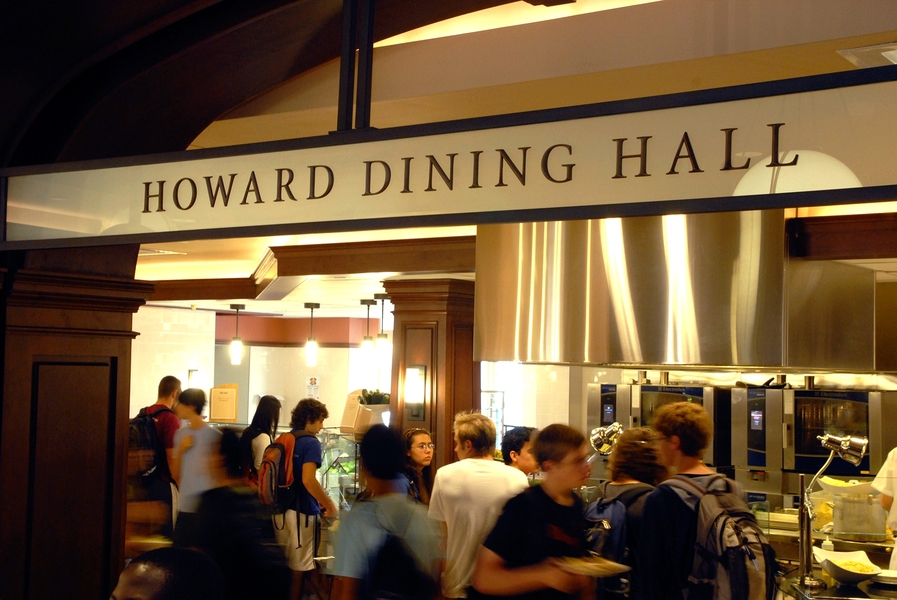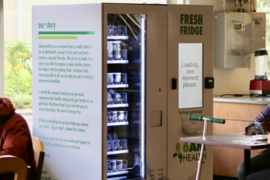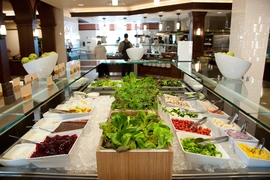MIT Dining, in collaboration with the MIT Office of Sustainability, has been selected as one of six recipients of the 2019 Henry P. Kendall Foundation New England Food Vision Prize. Launched by the Henry P. Kendall Foundation in 2018, the New England Food Vision Prize Program gives out as many as six awards of up to $250,000 each to help New England college and university food-service directors explore bold and innovative ideas that strengthen the region’s food system.
MIT’s concept — entitled “Food from Here” — combines resources from area universities, local food-processing collaboratives, and regional farms to sustainably increase the amount of local food served on campus. The proposed program meets the measurable, sustainable, and replicable goals of the Food Vision Prize while addressing recent recommendations from the MIT Food and Sustainability Working Group. Those recommendations call on MIT to ensure that students have access to “affordable, sustainable, and culturally meaningful food” and to “empower consumers to make informed choices,” all inspired by the Institute’s innovative spirit.
“I am proud and excited about this award,” says Suzy Nelson, vice president and dean for student life. “We want to make sure that students have access to delicious and nutritious food — and having it come from regional growers and co-ops is a great way to contribute to the Massachusetts economy, to support farms and farmers, and to strengthen our food chain.”
“MIT Dining’s proposal aims to sustainably increase the amount of local and regional food served and sold on campuses,” says Mark Hayes, director of MIT Dining. In this proposal, MIT partnered with Lesley University and Emmanuel College to share food sources and solutions. “Lesley and Emmanuel are both close to MIT geographically, and we share the same food-service contractor — Bon Appetit Management Company (BAMCo) — making them a natural choice for partnership,” Hayes says.
“Developing a visionary approach for new campus food systems is a huge task, so the idea is that if one university can figure out how to do that, that can be done elsewhere,” says Susy Jones, sustainability project manager at MIT. “By working with these partners from the outset, we can identify how to make something like this work in a way that is replicable.”
Working together, MIT, Lesley, Emmanuel, and their food-processing and gleaning partners will identify a core set of locally grown surplus crops — like apples, eggplant, and squash — that can be used across campuses, allowing the schools’ chefs to forecast demand and commit to regular purchases.
Boston Area Gleaners will help source the surplus produce from area farms. Commonwealth Kitchen and Western Massachusetts Food Processing Center will process the produce into products such as diced onions or crushed tomatoes that can be used year-round in recipes, sold in campus cafés, and made available in grocery and convenience stores.
The Food Vision Prize supports this effort by allowing organizations to dedicate staff to managing the effort and rolling it out in a way that engages campus communities.
“This award recognizes the innovative ways MIT is working to solve for sustainability across food systems,” says Director of Sustainability Julie Newman. “Building creative partnerships across campus and communities helps us tackle these big challenges, and this award supports our work in doing that.”
MIT Dining is continually working to add value and choice to eating options at MIT. Send suggestions, comments, or other any food for thought to foodstuff@mit.edu.









